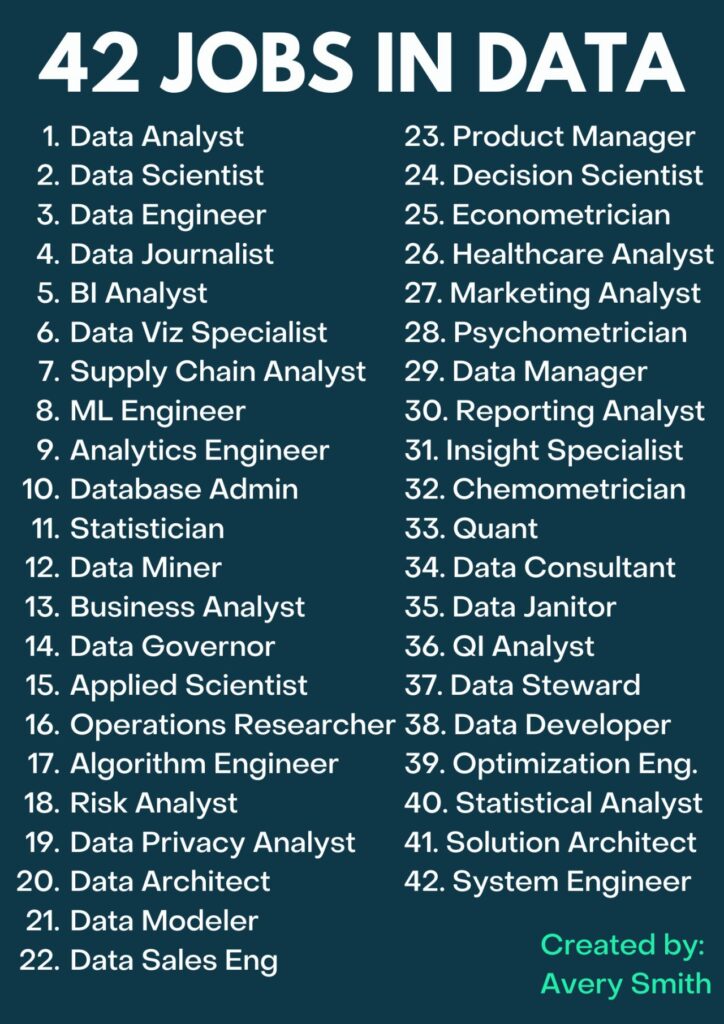Things you should know before starting your Data Analyst career journey
Posted on: June 4, 2024
Post Category: Data

For context
There’s a lot of people who want to break into data analytics…
People who are going through the traditional pathway, like studying at college/University, and people from less traditional pathways (like those who are doing bootcamps and those who are doing all the learning themselves)…
People who are looking to make data analytics their first career, and people who are looking for a career change…
People who want to give themselves a challenge by using a mix of quantitative and interpersonal skills, and people who want to work in a decently-lucrative role while (potentially) working remotely….
No matter what pathway you’re taking or what background you have – this post is for everyone who is (thinking of) starting their Data Analyst journey.
And I write this post to challenge some assumptions people might have about the career.
But let’s start with what a data analyst does
A data analyst performs data analytics. And data analytics is a specific type of data science.
Data science is the practice of using data to try and understand and solve real-world problems. And this can be carried out in different ways, like through building reports, dashboards or machine learning models.
A data analysts will typically spend alot of their attention creating dashboards and reports – to help stakeholders get a clearer view of their data, and to help provide insights that will support their decision-making.
However, in light of this definition, not every role with the ‘Data Analyst’ title does this type of work.
Data analyst roles may be partly data engineer, data scientist, consultant, etc. And this is because there is no industry standard when it comes to posting analyst jobs.
This is something to be wary about when applying for jobs – and I’ll talk more about this later.
But if you’re reading this, you’re most likely an aspiring analyst. And for you, I’d say keep your options open – you don’t need to specialise right away, and you can specialise once you start learning and figuring out what clicks for you.
So for your reference, let’s briefly go through some Data Analyst-adjacent roles – what their typical duties are, and how they’re different to a data analyst:
- Business Analyst: Business analysts improve business processes by aligning technology with company goals. Relative to data analysts, they are more process and strategy-oriented, less data-oriented, but can do some data analytics work.
- Business Intelligence Analyst: Business intelligence analysts are basically data analysts, except if they (really) nailed down the dashboard-ing and data visualisation component. They turn requirements into useful charts and dashboards, typically working with (less sophisticated) BI platforms/tools, like Tableau and Power BI.
- Data Engineer: Data engineers are responsible for keeping data neatly stored and formatted in databases, ensuring people get what they need. And, relative to data analysts, they tend to be more specialised in computer science and/or software engineering.
- Data Scientist: Data scientists, as mentioned earlier, broadly solve business problems by building reports, dashboards *or* machine learning models. While data analysts focus more on analysing historical data, data scientists focus more on making predictions using analytics. And while data analysts focus on stakeholder requirements and business impact, data scientists focus more on innovation and more open-ended questions. A convenient definition I use is that they’re data analysts with more sophisticated knowledge and expertise – at least when it comes to maths/stats and programming/databases.
- Machine Learning Engineer: Machine learning engineers are responsible for building and optimising machine learning models that run continuously. Relative to data analysts *and* data scientists, they nail down on building machine learning models and are more specialised in maths/stats and programming/databases.
You can read more about these Data Analyst-adjacent jobs here.
Now, let’s get to some facts of the data analyst job search – what you should be aware of, and what you should be doing…
Landing your first job requires *being* a capable data analyst and *selling yourself* as such
Needless to say, it requires hard work. It requires a lot of learning, uncomfortable project-building and application-sending.
And generally, it’s not enough to *just* do a bootcamp or a set of courses.
You’re also required to learn how to write a good resume and how to communicate your value in interviews.
If you want to maximise your chances of landing an analyst job, you will need to do both of those things:
- Learn the standard/required skills for the data jobs you are looking for.
- Know how to give yourself the upper hand in application processes: by optimising your resume, communicating your value, building your network and personal brand, applying frequently etc.
Not all roles with the ‘Data Analyst’ title are the same
When you search for data analyst roles on job boards, you might find that:
- In one role, you might be building dashboards
- In another, you might be doing some simple adhoc analysis and putting together slide decks
- And in another, you might be building some machine learning models
The type of data work you’ll do, and the tools you’ll work with, will always vary between roles.
And honestly, the only thing you *can* expect from any data analytics job is that there will be data cleaning involved – most of the time, a lot of it.
Another thing to keep in mind is that data analyst work is not what some people online make it up to be.
Not all data analysts work in tech, and not all data analysts can work remotely. Because data analysts can work in many different industries, and expectations will vary by industry (and company).
Data analysts can:
- work for basically any type of firm, including ones in Investment Management, Government, Finance, Consulting, etc.
- work some or all days in the office, and
- work for firms at different stages of the company lifecycle – from small high-growth startups to large established corporations
If you’re looking for something more relaxed and totally remote, your best bet is to apply for something in Tech – specifically the large established companies.
But it’s best to think about what industries you’re interested in and what kind of environment you would benefit the most from. You can read more about the perks and drawbacks of the different data science company archetypes here.
Read the job description, and learn about the company, before you apply for an analyst job.
In the same vein, not all data analytics work is given the ‘Data Analyst’ title
Business Analyst and Business Intelligence Analyst are common substitutes – and there are heaps of other ones.
Here’s a list of 30+ titles that can be used for data analyst jobs, which you should consider when searching for jobs online:

You will need to know some maths/stats to be a data analyst
Suppose you’re a Data Analyst: when you’re talking to stakeholders about the key metrics they’d like in a dashboard, you need to figure out the calculations (and data operations) you need to get there.
Now, suppose you’re a Data Scientist: when you’re interpreting the summary/output of a machine learning model, you need to understand what the numbers mean.
But this is not to say you need to have a Maths degree, or that the required maths is difficult to pick up.
At the end of the day, Data Analyst/Scientist work varies, and the amount of quantitative and technical expertise required varies. And anything can be learnt if you’re curious and willing to stretch yourself.
But, appropriately, for more quantitative data roles, the maths-learning curve is steeper. And it’s important for you to think about how deep down the maths-rabbit hole you want to go down.
So if you’re on the fence, deciding whether you should pursue a career in data analytics, know that there will be maths… if that’s what you are concerned about.
In the same vein, most data roles require some level of coding.
There are many different pathways to build your career in data analytics; choose the one that best suits your circumstances, but also get comfortable with teaching yourself
There are four primary pathways you can take to learn the skills needed for Data Analyst roles:
(and each have their own benefits and disadvantages)
(Under)graduate degrees:
+ : Relevant coursework and projects that will help you with your first junior role
– : Expensive, and inconsequential if you already have a data science-like background
Bootcamps:
+ : The opportunity to learn, build projects, and build a network within a short amount of time
– : Expensive, and large time commitment; you may be applying for jobs for months *after* finishing
Working in a Data Analyst-adjacent role (i.e. doing data analytics in your current job):
+ : Self-motivated, with little to no extra cost
– : Depends on having access to a supportive manager and mentor
DIY/self-taught:
+ : Because, with the courses and books available online, you can… and it’s cheap
– : Harder to showcase your knowledge/skills on a resume, and harder to build your network
One thing to keep in mind is that more formalised programs, like (under)graduate programs and bootcamps, might not fully equip you with the skills to land a data analyst job – especially on the job application front.
Though, doing an (under)graduate program or bootcamp definitely has its benefits, the biggest one being the recognition by employers.
But regardless of what pathway you go down, I’d say get comfortable with doing a bit of DIY/self-taught learning. You won’t be taught everything (even *while* you’re working as an analyst), so it’s important to take initiative and teach yourself whenever you see a gap in your knowledge and experience.

About the author
Jason Khu is the creator of Data & Development Deep Dives and currently a Data Analyst at Quantium.